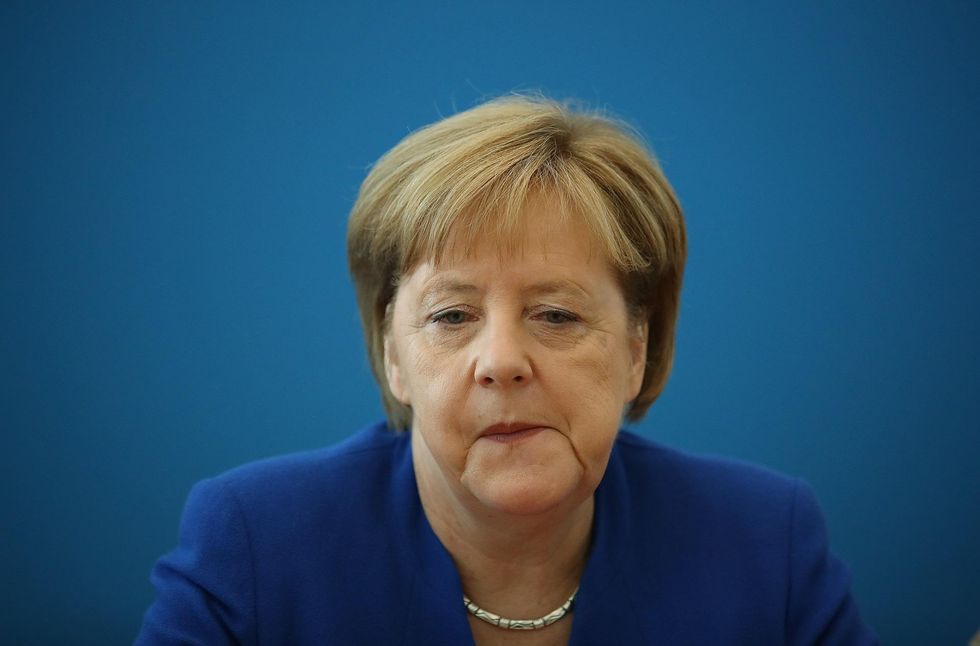
German Chancellor Angela Merkel made some concessions on her immigration policies on Monday. (Sean Gallup/Getty Images)

After facing pushback over her long-held open-door policies that have allowed hundreds of thousands of immigrants into her country, German Chancellor Angela Merkel gave in on Monday.
Merkel needed to make a deal in order to stay in power. Interior Minister and coalition government ally Horst Seehofer threatened to resign his post if Merkel didn't budge.
A day before Monday's agreement was reached, Seehofer told the press: "I will not be dismissed by a chancellor who is only chancellor because of me."
Following two days of negotiations, Merkels' Christian Democtratic Union party and Seehofer's Christian Social Union made a deal that Merkel referred to as a "really good compromise."
She told reporters afterward that "The security of our country begins on our borders." Merkel, who has long favored open borders between European countries, agreed to allow "transit centers" along the Austrian border for the purpose of screening asylum seekers.
The proposal — which must still be approved by the third party in Merkel's coalition, the Social Democrats — would also require that any immigrants entering Germany who had already applied for asylum in another European Union country would not be allowed to stay.
Mr. Seehofer also praised the new policy proposal, saying, "We have a clear agreement on how to prevent illegal migration in the future on the border between Germany and Austria.
"I am glad that this agreement has been reached. It has once again proved to be worth fighting to a conviction. And what has now been agreed is really a clear agreement that is very sustainable for the future."
While Merkel is quite popular in her country, with 54 percent of Germans polled saying they would like for her to remain chancellor, the appearance that she was strong-armed has given some political analysts pause over her continued influence.
Politics professor at Berlin's Hertie School of Governance Andrea Rommele said of the move, "It was a kind of open declaration of war against Ms. Merkel. The climate within the coalition is poisoned. It has become very clear in this crisis that the CSU can't and doesn't want to work with the chancellor anymore."
Director of the Berlin office of the German Marshall Fund, Thomas Kleine-Brockhoff added regarding Merkel: "Her political capital is depleted. We are well into the final chapter of the Merkel era."